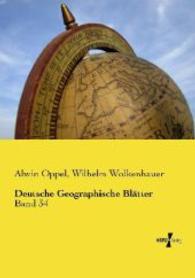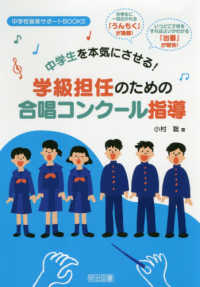Full Description
The work can be classified both as a reference work in Transdisciplinary Research Methodology and as a textbook to guide the Transdisciplinary Coproduction in the context of innovation and organizational and social development. The constituent elements of the work that make it a reference work in Research Methodology are the theoretical foundations on the unity of knowledge, on the issue of transdisciplinarity and on co-production, in a trajectory that begins with the first thinkers of the renaissance (and its basis in the philosophy of classical antiquity) addressing contemporaneity, supported by the main thinkers of transdisciplinarity and integrative research. The constituent elements of the work that make it a textbook is the presentation of the main conceptual frameworks on the partnership between academic and non-academic actors (public and private) for the co-production of scientific knowledge, which will be the basis for the presentation of a new method that is sufficiently robust to accommodate from scientific initiation to complex, deep and substantial doctoral studies.
Contents
List of Figures; List of Tables; Epigraph; Introduction, 1. The Concern with the Unity of Knowledge in History; 2. Transdisciplinarity; 3.Transdisciplinary Co-Production; 4. Transdisciplinary Research; 5. Knowledge Acquisition Design (KAD): A Framework for Transdisciplinary Co-Production Research in Knowledge Governance and Organizational Learning; 6.Final Remarks; References; Glossary; Appendix A: Timeline; The Authors; Index








